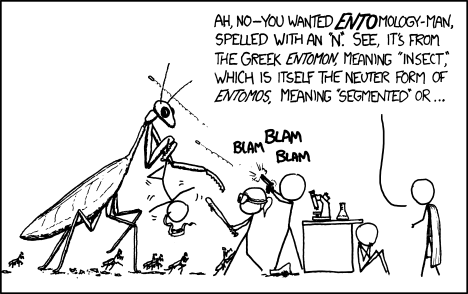Part I: Epistemology
Jim: "What is the answer to question Q?"
Joe: "The answer is X"
Jim: "What do you mean by 'the answer'?"
Joe: "Are you an idiot"
Jim: "Bear with me"
Joe: "An answer is just a response to your question that satisfies what it is you wanted to know"
Jim: "So Y and W are an answer to the question Q?"
Joe: "Well no, the implication of the word 'answer' is that it is a valid response - you can justify that it is valid"
Jim: "What do you mean by 'valid'?"
Joe: "Well X is a valid response to question Q because of A, B, and C"
Jim: "No I don't really care why X is a valid answer. That's your business. I'm asking you what 'valid' really is"
Joe: "I don't imagine citing methodological rules of thumb used by my community is going to satisfy you is it?"
Jim: "No."
Joe: "I don't know then"
Jim: "Well you should know!"
Joe: "Why? It doesn't seem like it makes a difference whether I know that or not."
Jim: "__________"
[If someone can give Jim a good answer for Joe, that would be swell]
Part II: Ontology
Joe stormed off after the pregnant pause to go answer a few more questions, but Jim is still preoccupied with question Q (or, more accurately - Jim is preoccupied with Joe's response to the series of queries in Part I. Jim really could care less what the answer to question Q is).
Jim: "So you said that..."
Joe: "NOT YOU AGAIN!!!"
Jim [
cornering Joe, fiendishly]: "So you said that 'the answer is X', right? I'm still not sure what you think a valid answer is, but lets not worry about that. Could you explain the rest of that statement to me?"
Joe: "Finally something substantive! Yes, it's very critical that we found out that X is the answer to question Q because of applications in..."
Jim: "Oh no, no - I'm sorry to confuse you. I'm not terribly concerned about X, I mean the rest of the statement"
Joe: "Huh? The rest of the statement? Those are the only two parts of the statement. 'The answer' and 'is X'"
Jim: "Right."
Joe: "Huh?"
Jim: "is"
Joe: "Huh?"
Jim: "What do you mean when you say that X 'is' the answer to question Q?"
Joe: "Are you just fucking with me now?"
Jim: "No this is actually a question that people have spent a lot of time writing about"
Joe: "
Ya Nazis..."
Jim: "What was that?"
Joe: "Nevermind. Yes I'm familiar with the broad outlines of the issue. I don't know the answer to that either."
Jim: "Then what grounds do you have for assigning beingness to X? How can you say that X is or that something is X if you don't know what 'is' is?"
Joe: "Well I do know what 'is' is"
Jim: "What is it?"
Joe: "To be"
Jim: "Right - but what is that?"
Joe: "Does it really matter?"
Jim: "It matters tremendously!"
Joe: "Aside from being a form of entertainment and mental pilates, why does answering that question in a way that will make you go away matter? What value does that question have?"
Jim: "_______"
Joe: "And furthermore, how can we even answer a question like that? It seems to me we only have access to our own observations and the sort of word games that our brain is able to apply to those observations. We know neither can be completely trusted. So how do you expect to get a handle on some kind of ultimate nature of reality and being when you are so poorly equipped? In other words: can anyone really answer your question?"
Jim: "_______"
[Again, if you can fill in the blanks my hat is off to you]













